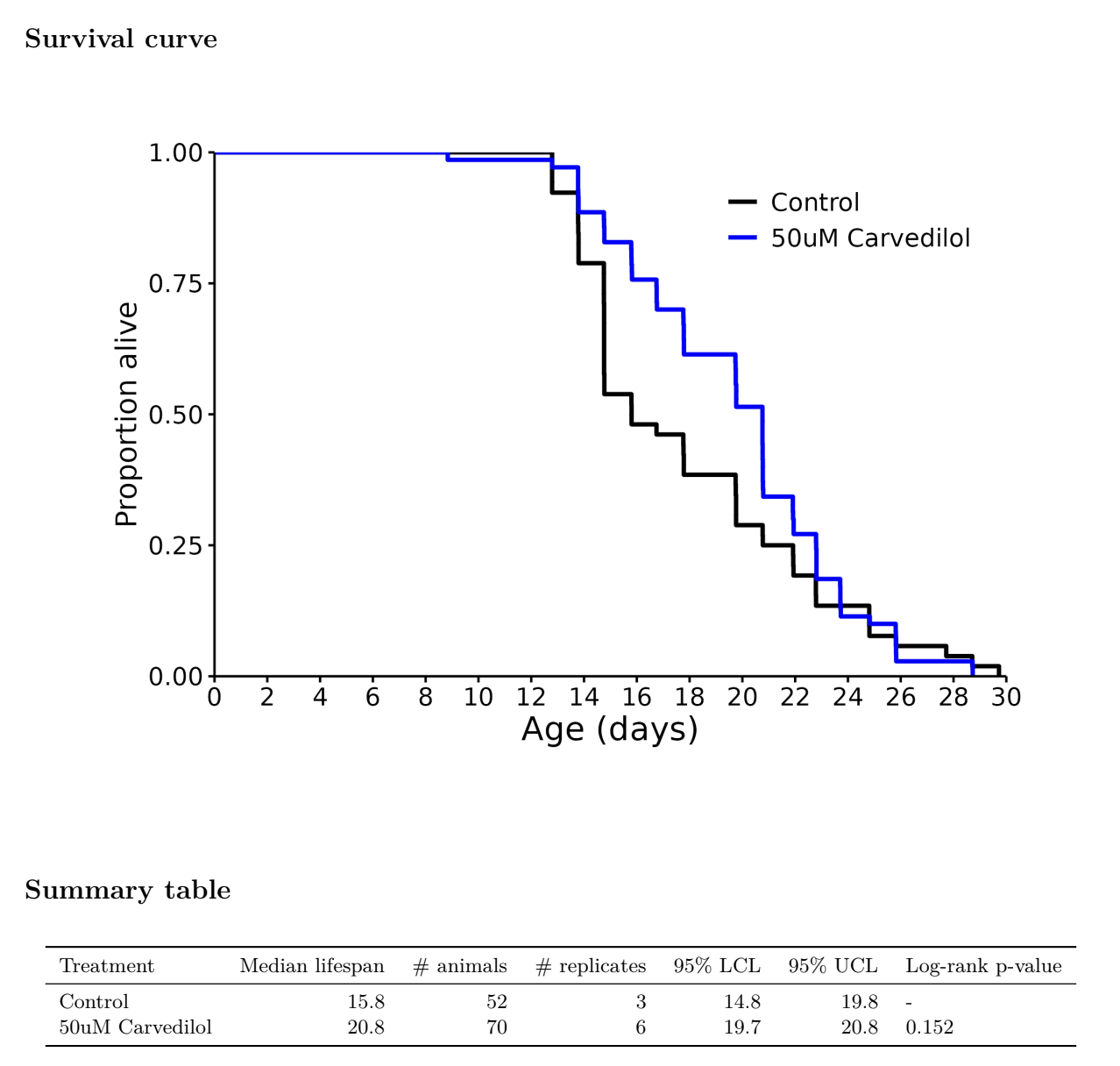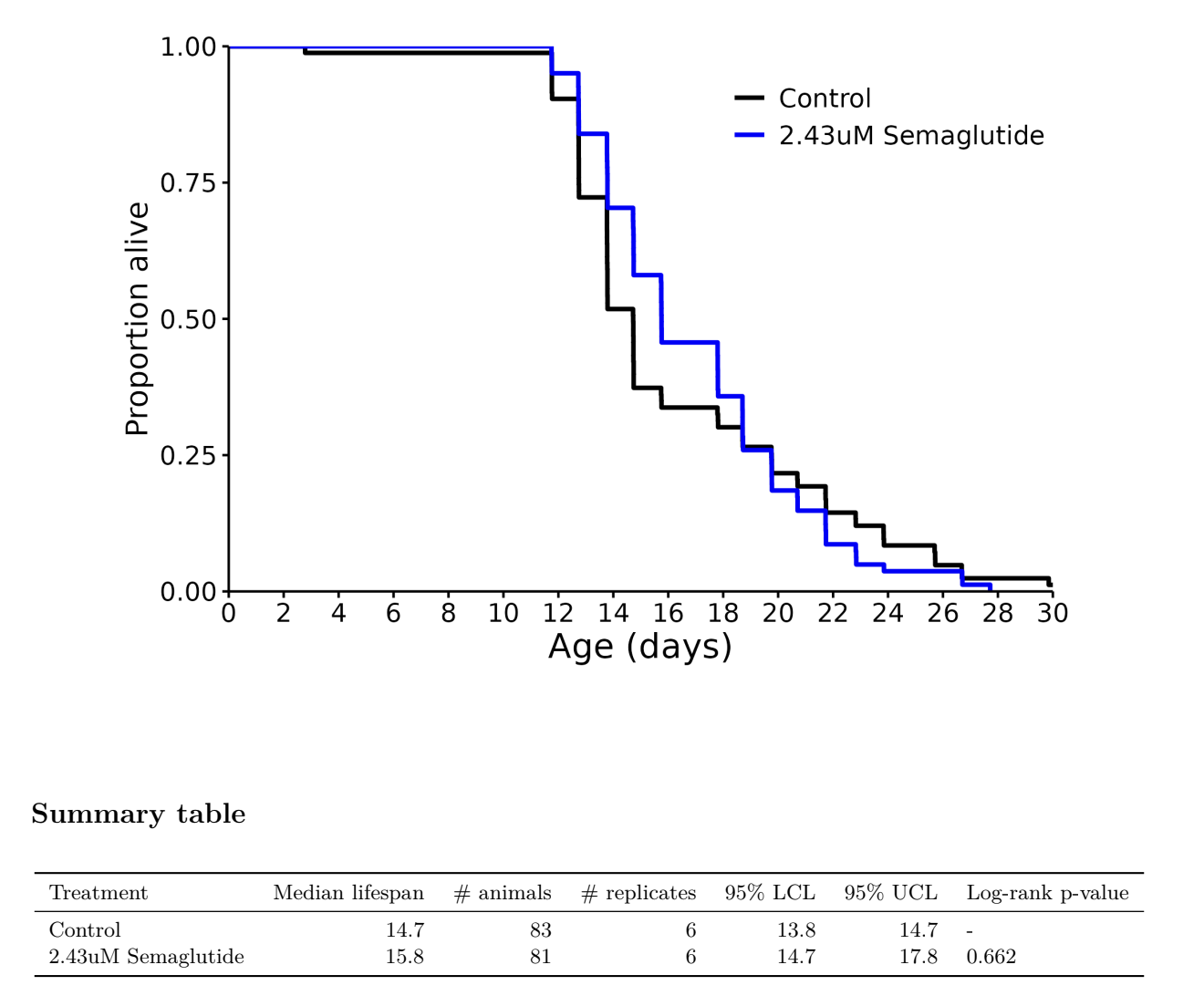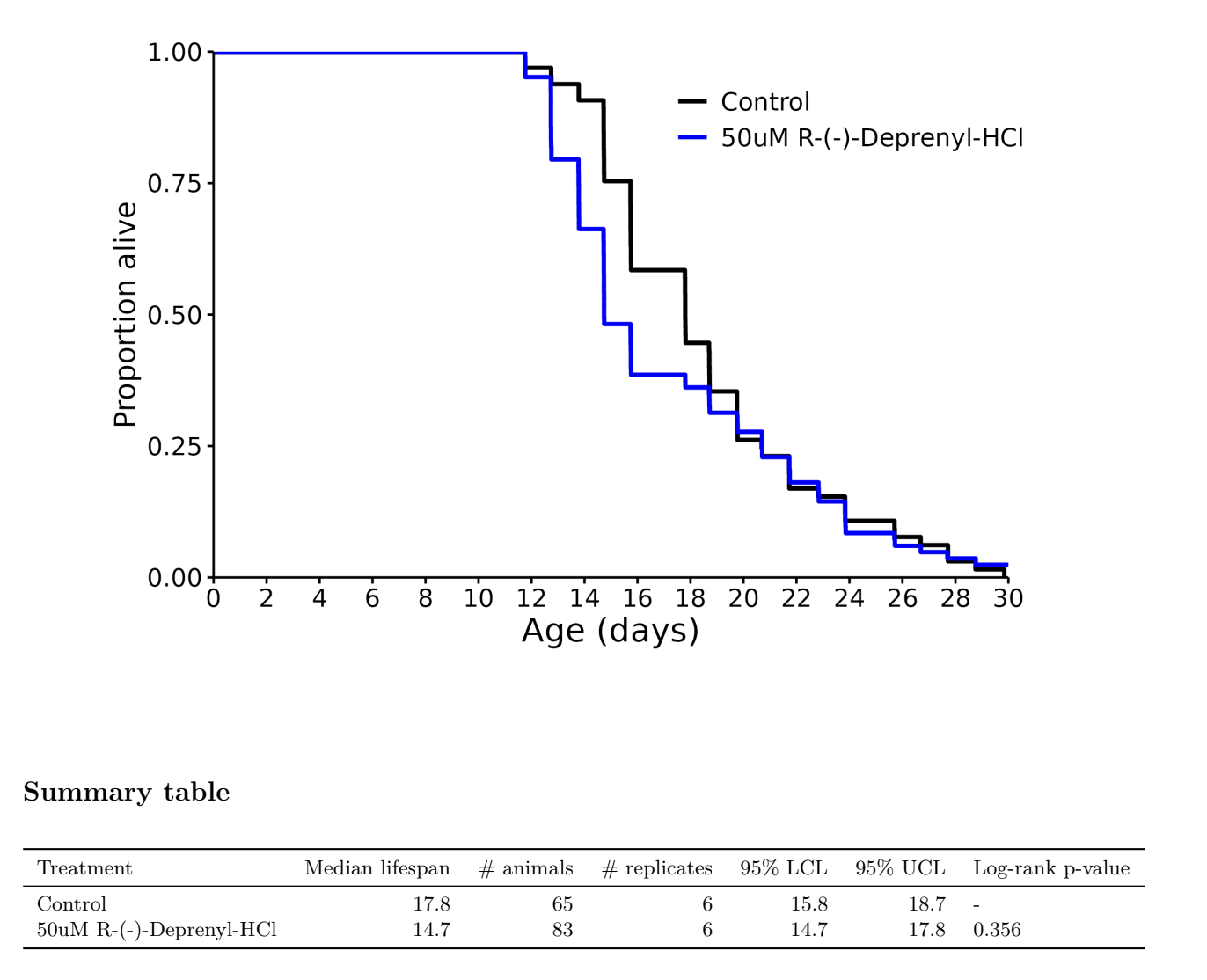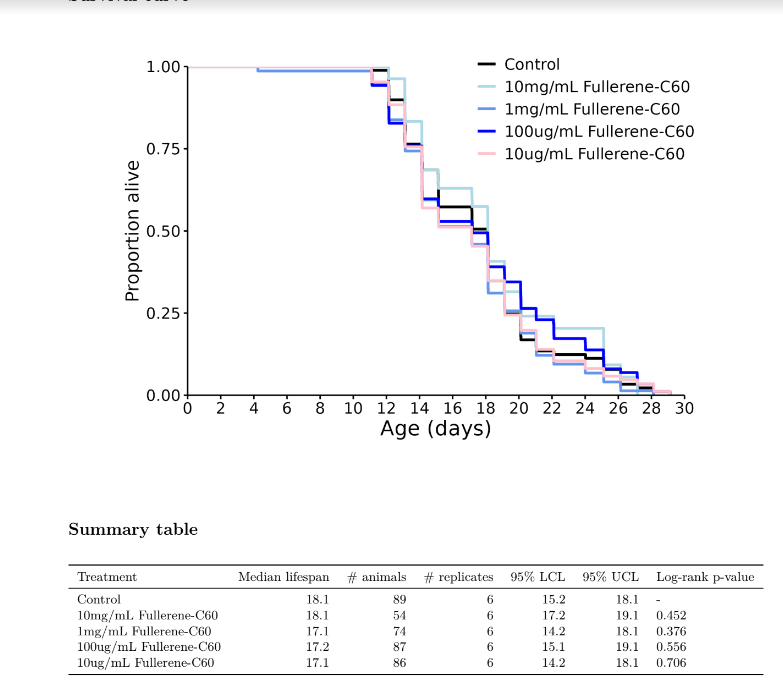Past Lithium discussions:
The first paper is the only one with a convincing graph; the rest, not so much.
And lithium failed in mice: Lithium can mildly increase health during ageing but not lifespan in mice
I still think there’s a strong case for lithium, but it might be a matter of concentration and form: do these papers say what they used? (I don’t have access to them.)
The data on Lithium still seems pretty “circumstantial” right now… I take it because its easy and cheap, but I think its still early in terms of any robust data.
I find the tap water data (for lifespan and dementia) fairly strong. And it’s been used for low mood at low dose for decades in many countries. And it seems relatively safe even at high doses in psychiatric disorders. That’s enough for me to use it (1 mg/day).
I think the tap water better is good. In any event not that everything in tapwater is perfect it has to indicate some form of safety validation.
I would think it helps in the sphere of senescence and hence would not really pass a mouse test.
I asked them your questions and shared these papers: they’ll try to replicate them exactly (same concentration, same lithium form, etc.) and will post the results to the dashboard once finished.
Yes, it seems that the McColl et. al. paper is one of the primary sources for this idea. They got the maximum effect at 10mMol (as chloride, though this shouldn’t matter).
I reiterate that I’m not an expert on this finding (usually I only pay passing attention to worms – I think they’re a bad model).
What is a good model?
For rapid screening, like the Ora project, I’d look at Daphnia. Killifish, then mice would be my off the cuff suggestions in order of cost. But this issue really needs to be discussed more – the best experimental flow surely hasn’t been found yet.
There are 2 big problems with Caenorhabditis:
- They have a peculiarly plastic life cycle – the machinery of dauer formation is always lurking there in the background. So a lot of your hits are just activating plasticity that might not transfer between phyla.
- They don’t replace cells. The changing activity of stem cells is super important in mammalian aging, but that phenomenon doesn’t exist in worms.
Again, this is off the cuff and I would welcome any discussion of alternatives, or the trade-offs involved.
I have gotten my results back, and they are very promising. I sponsored an experiment with Doxycycline HCl 50µM, and got an 19 % increase of median lifespan, but did not reach statistical significance. This because doxycycline shortened the lifespan in the early period of the experiment but extended the lifespan in the later period. I contacted Ora, and asked if I could sponsor Doxycycline again, but this time I would like to start the Doxycycline at around day 9 or 10. But they cannot do this kind of experiment at this stage. But I speculate that a later start with doxycycline should give an even bigger increase of median lifespan and also reach statistical significance.
Doxy.pdf (253.6 KB)
Yes, I got the “custom contract” reply for pentadecanoic acid and urolithin a. These are both easily sourced but I don’t want the hassle of the custom contract.
Nice, good to hit the dart board!
I did the custom contract for Urolithin A, results coming soon…
Got carvedilol:
Semaglutide:
And selegiline / deprenyl:
Ah, well done! Looking forward to seeing the results of Urolithin A!
Another interesting compound is Emoxypine (Mexidol). It’s a succinate derivative similar to the hydroxypridine structure, which is similar to pyridoxine. This compound has been around for a long time having originated in Russia. It was sold on Amazon at one stage.
It is reputed to have a wide range of properties including: anti-hypoxic, neuroprotective lowers cholesterol and has cardio protective and anti-atherosclerotic action. It can cross the blood brain barrier owing to its relatively small size and low molecular weight and is claimed to treat neurodegenerative conditions such as Alzheimer’s disease.
just got my results from Ora:
The highest dose is almost equal to the control, but technically it won. I would say not significant no matter how hard you squint.
Has anyone tried fatty15/C15:0 on them? It’s possible to directly contact Stephanie about sourcing it to them. I think it’s one of the more interesting things b/c it acts on way more basic/fundamental biochemistry than most of the weird ones that target weird mammalian receptors
I tried the C60 but it had zero subjective or measurable impact so I stopped after the first bottle
I’ve never tried it.
I just got all 5 results back and two extended lifespan, and one looks like it took the new record. Any guesses on what it was or how much extension?
Berberine hcl
Taurine
Glycine
Sulforaphane
Egcg (green tea)
I’ll call berberine hcl for 42% Josh.



